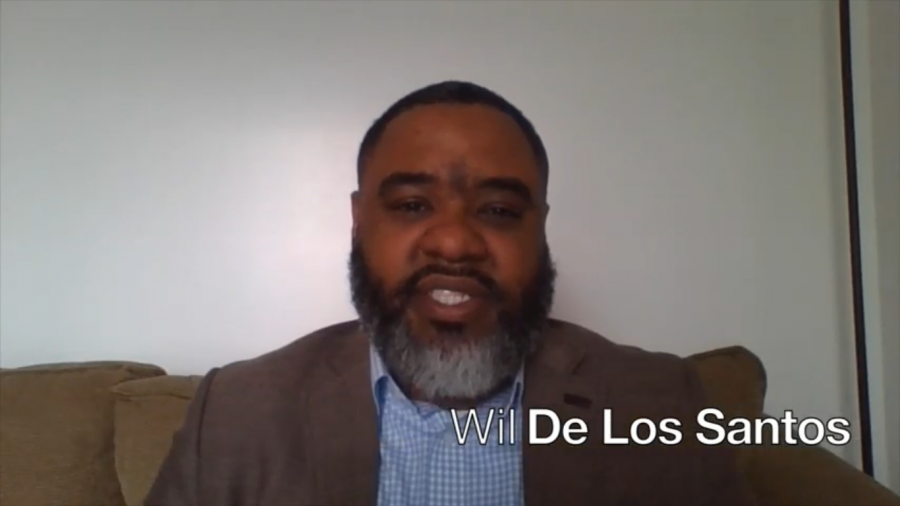CORRECTION: This article was corrected on Nov. 13 at 10 a.m. CST. It previously incorrectly stated that the presumptive penalty for the first offense can range, while it is fixed. The first penalty can range. It also previously stated that the Honor Council manages recusals, whereas Student Accountability does. Additionally, it has been updated to include two other ways in which Council members can be recused from hearings.
UPDATED: This article was updated on Nov. 13 at 10 a.m. CST to include that students can also make reports to the Honor Council. It was also updated to include additional context about Honor Council faculty advisors’ involvement in cases.
We’ve all been through it. Hours on end of presentations during orientation from the Honor Council that could be reduced to nothing more than an email pamphlet. As a new transfer student at Vanderbilt, it was an intimidating experience to say the very least.
The Honor Council is a student organization tasked with upholding and enforcing the honor code and the principles of academic integrity. They aim to judicially pursue students under suspicion of such violations and seek appropriate disciplinary action as defined in their constitution and bylaws.
No matter what they wax about righteous values and making Vanderbilt a better place, the Honor Council feels more like a group out to get students on seemingly minuscule and vague technicalities. As students, we aren’t given a good idea of the offenses that constitute a failure in a course, a suspension, a failure on a single assignment or just a warning. This uncertainty inherently creates fear and detracts us from collaborating on assignments to avoid the Honor Council labeling it as dishonesty.
It seems that decisions over matters of punishment are left largely to the discretion of the council. As a result, we’ve created a system where one student could fail a course for copying two sentences off a Wikipedia article on their Brightspace discussion board, while another could get a slap on the wrist for the same offense or worse. The Honor Council reviews the level of the violation, the degree of premeditation and the honesty of the accused student throughout the hearing. Yet, we’re left in the dark over the weight of precedence and honesty during these hearings. The penalty for a first offense can range from a reprimand with a recommendation for failing the assignment all the way up to expulsion. The only universal and clearly established rule in regard to Honor Council reprimanding is that a second infraction will lead to suspension and that the third infraction will lead to expulsion.
Additionally, reports to the Honor Council are made at the discretion of a professor and students. As a result, students may have different outcomes based on their professor’s desire to muddle through the hearing process and their adherence to the Honor Code.
The resounding message during the Honor Council’s orientation presentations was that a violation means you are doomed. There isn’t any room for considering extenuating circumstances. I don’t intend to justify cheating, but students under extreme duress could feel helpless, turning to academic dishonesty as the only way out. This possibility rings especially true in a high-stakes, high-pressure environment like the one here at Vanderbilt. Addressing some of the root causes of academic dishonesty would likely curb incidences of cheating without the need for aggressive consequences. For example, universal policies regarding student emergencies could be created for all undergraduate departments and schools.
It feels like we give an overwhelming amount of power to a group of fellow undergraduates whose intentions can come under question. The prospects of “leadership” and “school involvement” with the Honor Council are appealing for résumé padding.
The idea of trusting a group of peers who could very well harbor personal biases in deciding significant parts of our academic future is also flawed. Council members are only recused from hearings if they are or have been personally connected to the accused, if they’re part of the same fraternity or sorority, if they have been previously involved in a hearing with the accused or if they have taken or may take the same course as the accused. Outside of Greek Life affiliations, no other provisions exist excluding members who are part of the same organizations or athletic teams.
Last year, 71% of cases ended in a guilty verdict, with most students found guilty being punished with course failure. How can we trust that those verdicts were conducted with integrity? How can we trust that the 12% of cases dropped were done in good faith? We can’t.
The Honor Council’s constitution doesn’t give us any good answers, either. Just about every violation is pursued with only one thing in mind: the three-sentence-long Statement of the Honor Code. The Honor Council’s use of faculty advisors helps to foster additional accountability, but the makeup of those advisors is not representative of the faculty population. Nine of the 25 advisors are from the School of Engineering, while only five are from Arts and Science, eight from Peabody and four from Blair. This breakdown is in spite of how most faculty members in undergraduate departments are concentrated in Arts and Science. Even though faculty advisors do not vote in full panel hearings, they vote in small panel hearings and contribute to hearing discussions. Therefore, having a representative faculty board is helpful for providing context on varying standards across the university. If there is a reason for the skewed faculty makeup, it must be made clear to us.
We need to replace our current Honor Council with a board of representative faculty who would lay out specific guidelines to appropriately evaluate the accused and their cases. Having a board of faculty would avoid putting the burden of responsibility on students to punish one another and promote an unequal power dynamic. While the problem of bias during a hearing might still exist, it would be much easier to address by eliminating faculty who either teach or advise the accused.
Another potential solution involves giving the accused the same punishment regardless of the severity of their infraction, as is done under the famous Honor System at the University of Virginia. Although potentially harsh for some infractions, this standardization would ensure no unexpected or biased treatment is given. Even at a school twice the size of Vanderbilt, UVA often only handles around 20 sanctions per year compared to Vanderbilt handing out an average of 85.17 sanctions per year over the past 4 years.
I’d rather trust a group of trained educators with years of experience dealing with academic integrity violations than a group of my fellow students to punish their peers. They have the experience that the current Honor Council doesn’t.
Let’s do away with the current Honor Council and Code for the benefit of Vanderbilt.
Editor’s note: The Hustler contacted The Honor Council to comment on the criticisms put forth in this piece. The Honor Council’s full statement can be found below.
“Fundamentally, the Undergraduate Honor Council emphasizes a commitment to fairness, equity, and respect for students in how it conducts its proceedings and hearings. The organization and its processes are student-run to underscore a high commitment to our fellow students, holding peers accountable so that, as a university community, we maintain the highest standards of academic integrity, while also vindicating the names of those who are innocent. Furthermore, the organization’s policies and procedures are intentionally crafted for this purpose, such that from the investigation to the hearing there is respect for the parties involved and a fierce adherence to consistency and fairness. To that end, the penalty structure of presumptive and minimum penalties is outlined in the Student Handbook and panelists utilize a rating system to maintain equitable outcomes across cases.”








